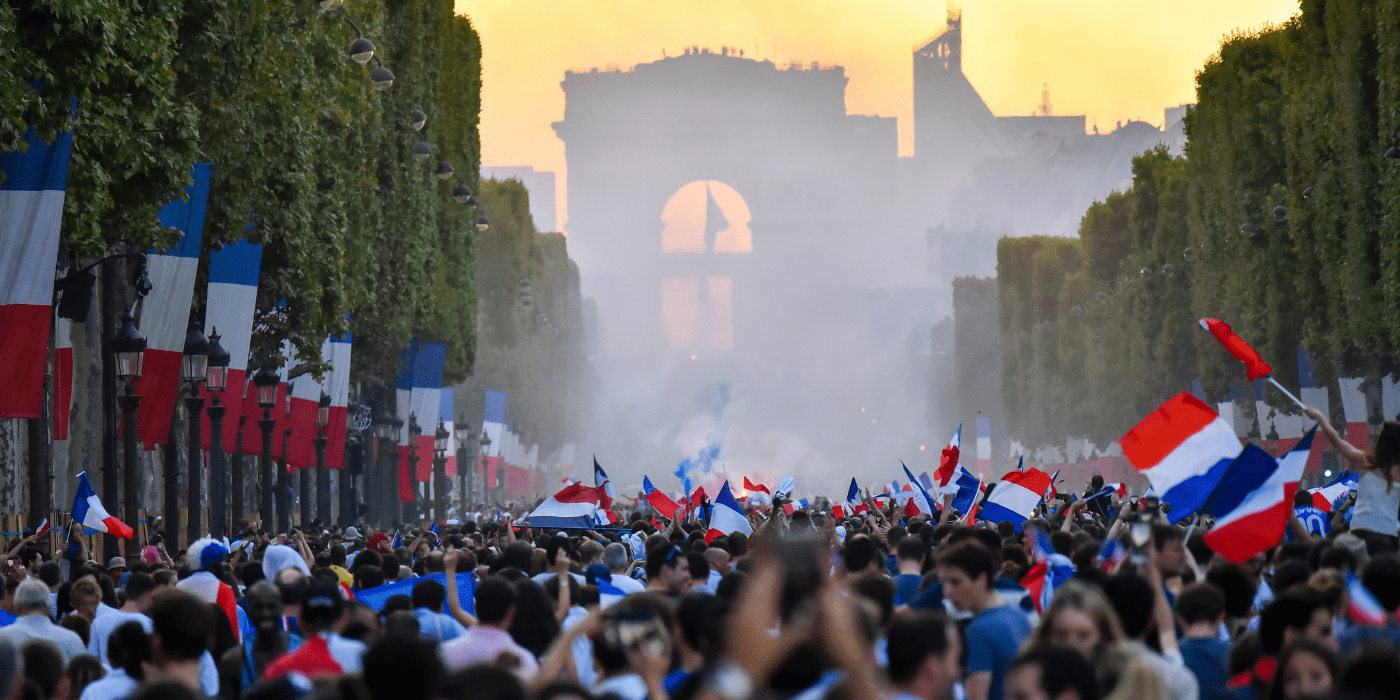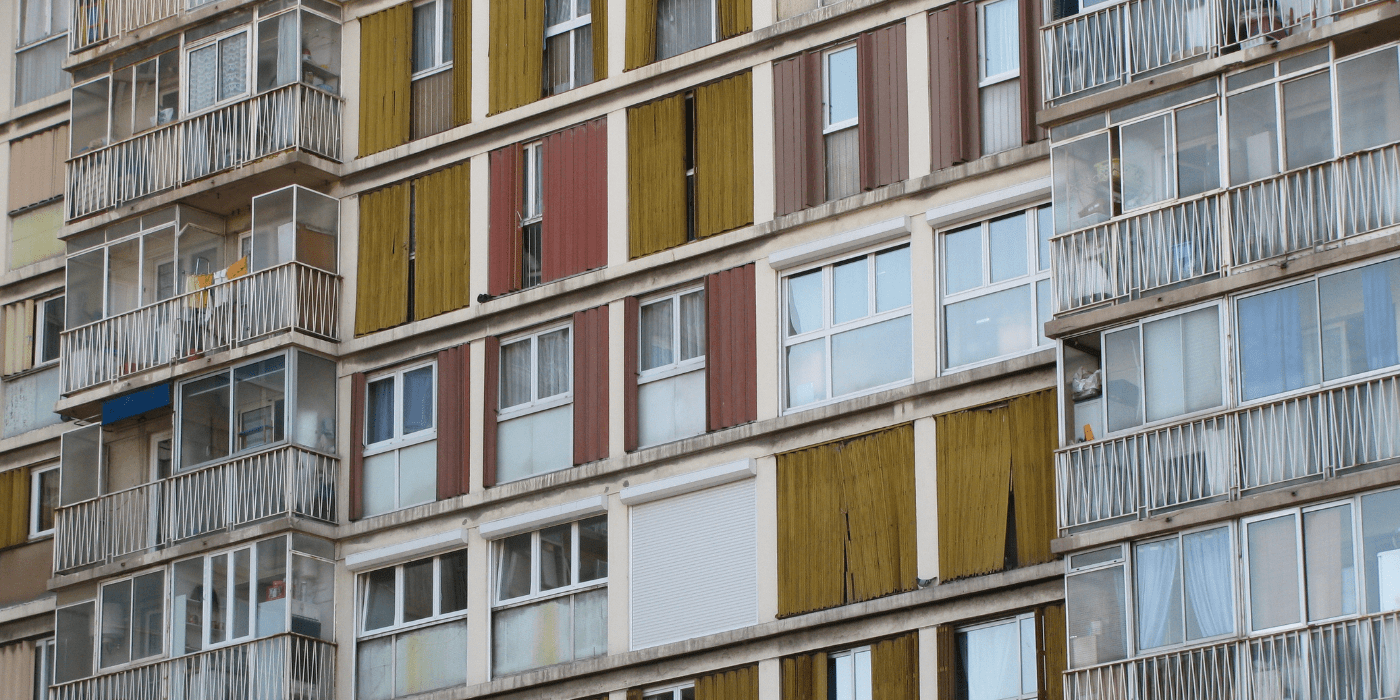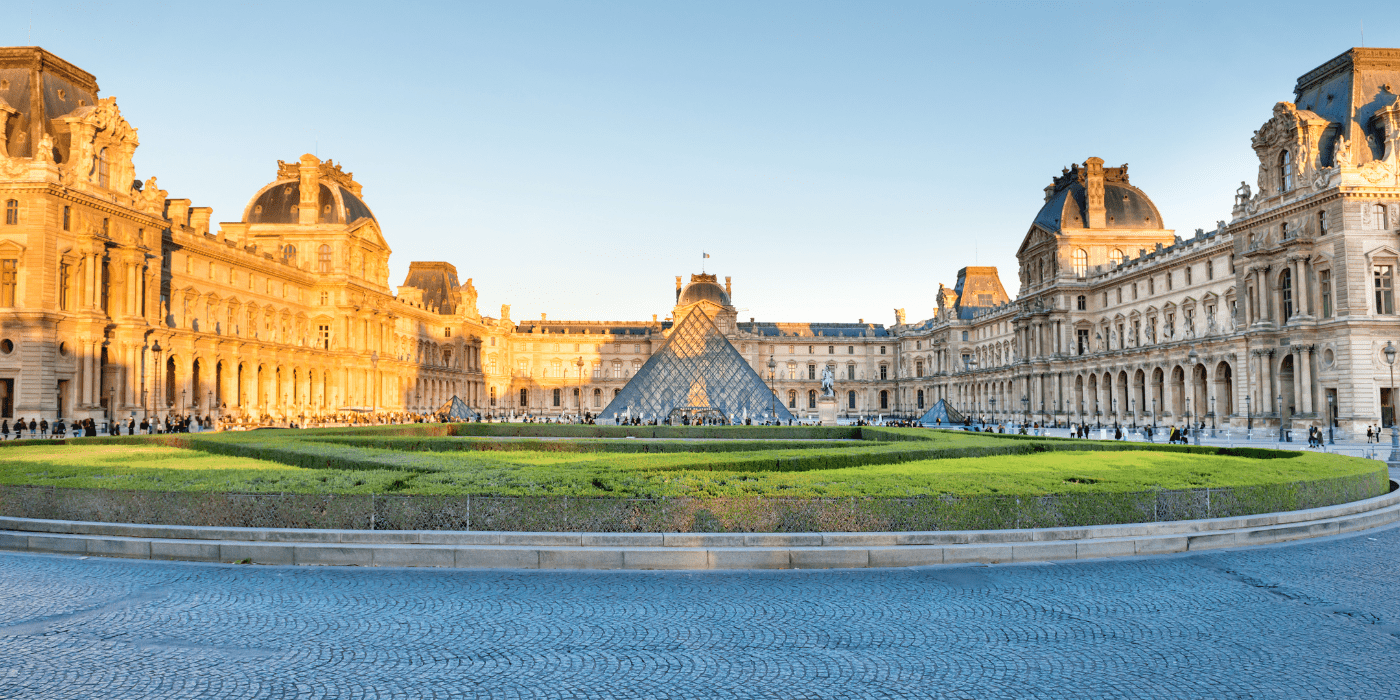Defying the Myth of Universalism
Mame-Fatou Niang, associate professor of French and Francophone studies, is challenging France's status quo
By KellyAnn Tsai
What does it mean to be French?
For us Anglophones, we might point to a refined culinary palate, impeccable fashion taste, an affinity for baked goods, a certain je ne sais quoi. But for the French, it comes down to three words.
France’s national motto — “liberté, égalité, fraternité” — is known to many. Embedded in these words is the belief that the fundamental rights of liberty, equality, and fraternity are universal to all French citizens.
Under this model, known as “universalism,” one’s identity as a French citizen transcends race, ethnicity, gender and religion. Dual or hyphenated identities such as Afro-French, Arab-French, Chinese-French, etc., simply cannot, and do not, exist. Either one is, or is not, French; all French citizens are inherently equal.
Inspired by the Enlightenment and solidified with the birth of the French Republic in 1789, universalism remains, to this day, an integral part of French national heritage. In a 2020 interview with The New York Times, President Emmanuel Macron of France reaffirmed the country’s commitment to universalism. He said, “Our model is universalist, not multiculturalist [...] In our society, I don’t care whether someone is Black, yellow or white, whether they are Catholic or Muslim, a person is first and foremost a citizen.”
But there is a growing movement challenging France’s staunch commitment to universalism. Leading the way is Mame-Fatou Niang, associate professor of French and Francophone studies at Carnegie Mellon University. Niang, a Black woman who was born and raised in France, says the prevailing notion of French universalism is a myth.
“You grow up in this myth — and it's an amazing myth — that everybody is equal,” she said. But France’s complex history, including centuries of slavery and colonialism, as well as more recent issues of Islamophobia, urban segregation (banlieues), and police brutality, calls into question the claim that France has achieved a truly egalitarian society.
Through her academic publications, talks, interviews, and films, Niang seeks to redefine universalism for the 21st century. She said universalism should not be considered an inflexible truth, but rather a constantly evolving concept that embraces and reflects the varied identities and experiences of French citizens.
“2022 France is not 1789 France. Why do we have to live with rules that, even at the time, didn't make sense?” Niang said.

Celebration on the Avenue des Champs-Élysées in Paris, France following the 2018 FIFA World Cup. Photo by Tommy Larey.
A personal connection
Niang’s work is highly controversial. Critics have called her a racist and a traitor for daring to question what they consider to be unassailable French Republican values. But Niang remains steadfast in her mission, driven by a personal desire to assert her validity as an Afro-French woman.
“Growing up, there was one question that really haunted me: 'Where are you from?'” said Niang. “They [really] wanted to know where my color is from, because Blackness is not seen as something that is naturally French.”
Niang’s ancestors originated from Senegal, but she is the seventh generation of her family to be born and raised in France. Even so, her skin color means she was, and is, challenged about her Frenchness on a daily basis.
This constant need to prove her Frenchness was drilled into her from a young age. Niang grew up at a time when France was conducting raids and deportations in an attempt to reverse years of lax immigration policies. Although Niang and her sister were young — just 12 and seven years old — her mother secured official identification papers as proof of their French citizenship, which she insisted they carry at all times.
“She was so scared that we would get caught by the police [...] and sent to Senegal or Mali,” said Niang.
In high school, Niang would frequently be singled out by police as the sole Black person among her friends, while her peers remained unquestioned. For Niang, it was clear that “something was saying my presence in the group was not normal, and it needed to be constantly checked to prove I had the right to be there."
These experiences are the guiding light that has led Niang to her research. “It's really a personal experience that got me studying this gap between the ideals we have of everybody being equal, and the reality,” she said.

A building in a banlieue (suburb) of France
Reinventing universalism
France embraces universalism because it is a desirable ideal. To claim that French society can look past race, ethnicity, gender, and religion and see all citizens as equal is an appealing notion, which is why it still holds water with many French people today, over 200 years later.
In a 2019 Ipsos survey, 63% of French citizens said that commitment to the French Republican ideals of liberty, equality, and fraternity best defines “what it means to be French.” Ninety percent said that “values of the French Republic” play an important role in uniting the French. Yet membership to this community of “the French” is strictly guarded; this same survey found that 50% of respondents consider “people of foreign origin (origine étrangère)” a “threat to French identity.”
This contradictory belief in equality for all, provided you belong to a certain group, is at the core of universalism. At its outset, universalism claimed to do away with inequality and discrimination, even though in 1789, slavery in France was legal (it would be abolished in 1794 and reinstated in 1802), women could not vote or own property, and France’s “Code noir” and “Code de l’indigénat” severely limited the rights of Black and indigenous peoples.
“It's mind-boggling that this thing that says that everybody is free from bondage exists with all these exceptions,” said Niang.
The exceptions underpinning universalism continue to manifest in modern-day French society. Most notably, France has a long history of police brutality, particularly against people of color. In 1986, a French-Algerian student named Malik Oussekine was beaten to death by police officers while walking by a protest in Paris. In 2016, Adama Traoré, a Black man, was arrested and later died under French police custody, a case that has reinvigorated the anti-racist movement in France. In 2017, 22-year old Théodore Luhaka was left disabled after a violent arrest. In January 2020, Cédric Chouviat was killed after being pinned to the ground by French police. These incidents are all consequences of what Niang calls the “universalist myth,” which continues to perpetuate the idea that only those who meet certain criteria are granted full equality and autonomy.
Niang is part of an ongoing movement that challenges the universalist myth. But unlike some of her peers, her goal is to redefine — not dismantle — universalism for the 21st century. Ultimately, she believes in the potential good of universalism.
“Anything that has as its goal liberty, equality, and fraternity is something that needs to be saved,” said Niang. But, she said, drawing a parallel with a software program, “We have to go back and check the bug. We can't keep going on with the bug.”
What distinguishes Niang’s universalism is its flexibility. In her 2022 book "Universalisme," co-authored with Julien Suaudeau, Niang says universalism “should not be crystallized, but should rather be perceived as a fluid disposition, a dynamic work in progress never completed, always to be redesigned.” The willingness to redefine universalism according to the realities of all French people, including their experiences as targets of discrimination, is essential to realize the universalist vision.
“[Universalism] has never been attained,” said Niang. “It is ideals, it is goals, that need to be constantly reevaluated based on the society that we’re living in.”
Collective amnesia and the role of museums
Because universalism is so deeply entrenched in the French ethos, many of Niang’s critics equate any critique of universalism as a direct attack on the foundation of democracy and the French Republic.
“We now see this movement where people say, ‘our culture is under siege, we have to protect it,’" said Niang. “They have taken universalism and ‘museified’ it. It becomes this stuck thing that can't move, that won't move, that cannot be changed, and anybody who wants change is a danger.”
This strong reaction is the result of what Niang refers to as “collective amnesia,” in which many French citizens simply are not taught about the country’s problematic past.
“We just don’t learn about slavery [in France],” said Niang. “The reason people ask me where I'm from is that there's nothing, literally nothing, in our history books, in the way streets are named, in statues, that explains how someone who looks like me ever contributed.”
As a result, many French citizens espouse universalism as a core principle of the Republic while remaining ignorant of the ways in which France not only denied basic rights to marginalized people, but erased their contributions to the country. Niang calls this the “innocence of not knowing,” a consequence of the shortcomings of the French educational curriculum.
By undoing this collective amnesia through education, Niang says that French citizens can begin to better understand the reality of the Black experience in France over the last 400 years. This “unveiling” of truth is a necessary step to not only achieve a contemporary version of universalism that validates and recognizes the experiences of minorities in France, but move towards a France where race and other identities are seen as important contributors to the country’s history.
To this end, part of Niang’s work is assessing and collaborating with European museums to ensure that the history of Black people in Europe as a whole — including slavery and colonialism — are fully represented.
“If you think about the importance of the museum in the construction of French and European identity, it's absolutely one of the places where we have to work,” said Niang. Her work will result in a ranking of European museums’ efforts to update and, in Niang’s parlance, “decolonize” their exhibits; she presented her findings at the first session of the Permanent Forum of People of African Descent at the United Nations in December 2022.
Niang says one of the most positive results of her efforts is that conversations are happening. “These are conversations that were impossible 20 years ago, or 10 years ago, or — in the case of France — five years ago,” she said. “Just the fact that the conversation is happening, it gives you a lot of hope.”

Entrance of the Louvre Museum in Paris, France. Photo by Pavlo Vakhrushev.
The train of truth
Niang recognizes there is still a long way to go before France fully embraces a new understanding of universalism; there are still many resistant to change. But she has made her peace with this.
Drawing from her African roots, Niang has adopted a philosophy of “trusting a long time,” or trusting in the inevitability of change over centuries. For Niang, “The train of truth has left the station.”
“My truth is that I think the train has left, and whether people want to get on the train or not is up to them. I can't force them,” she said. “You can't save people beyond how they want to save themselves.”
Instead of focusing on her critics, Niang invests her efforts in helping those receptive to change. In addition to her academic publications, Niang also creates films, apps and other artifacts that tell the stories of Black people in France, to help “get the word out in as many ways as possible.”
In 2017, she co-directed, produced, and edited the film "Mariannes Noires," a documentary featuring seven French-born women of African and Caribbean descent. She has also helped develop Verso, a tourism app that unveils the contribution of Black people to some of Paris’ most famous monuments. This is the work that is most meaningful to Niang.
“I love it when I see my 13-year-old niece and nephew watch my film or show my app to their friends, because I think that my research answers questions I had when I was that age,” Niang said. “Why am I in this country? Where am I from? Do I belong?”
Niang continues to blaze a trail in the academic sphere, but she is most focused on the impact that her work will have on those who share her experience.
“It's really about when I see my teenage niece reading this, and it shows her that she belongs.”
The English translation of "Universalisme" (2022) by Mame-Fatou Niang and Julien Suaudeau is forthcoming.